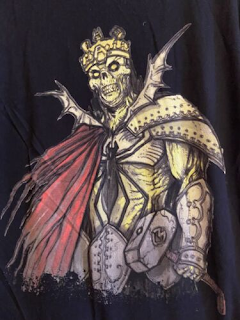The Zombie Dust (Intro):
 |
| A shirt logo |
Zombie Dust. It's a phrase that conjures up images of the undead and the macabre. But what exactly is zombie dust, and why does it hold such a fascination for so many people? Is it a real substance, or just another urban legend? In this article, we'll explore the myth and reality of zombie dust, and shed some light on this mysterious substance.
What is Zombie Dust?
 |
| A drink that may have a zombie dust substances |
Zombie dust is a term that is used to describe a variety of substances, each with its own unique properties and characteristics. In some cases, it refers to a type of drug that is rumored to be able to turn people into zombies, while in others, it is used to describe a powdery residue that is left behind by decomposing bodies.
One of the most common interpretations of zombie dust is that it is a type of drug that can induce a state of trance or lethargy in those who consume it, rendering them zombie-like and susceptible to the control of others. However, there is little evidence to support this claim, and it is likely that the idea of zombie dust as a drug is simply a myth.
Another interpretation of zombie dust is that it is the residue that is left behind by decomposing bodies. This type of zombie dust is thought to contain a variety of toxins and pathogens that can be harmful to humans, and is often associated with the spread of disease and infection.
Is Zombie Dust Real?
 |
| Zombie drug' Xylazine |
While the concept of zombie dust may be a popular one in popular culture and folklore, there is little evidence to suggest that it is a real substance. While there are certainly substances that can induce a zombie-like state in humans, such as certain drugs and toxins, these substances are typically well-known and well-understood, and are not referred to as zombie dust.
Likewise, while the residue left behind by decomposing bodies may indeed contain harmful toxins and pathogens, it is unlikely that this substance would be referred to as zombie dust in any serious scientific context.
The Danger of Zombie Dust
Despite the fact that zombie dust may be a myth, there are still real dangers associated with the concept. The idea of a substance that can turn people into mindless, zombie-like creatures is a powerful one, and has the potential to inspire fear and panic in those who believe in it.
Furthermore, the idea of zombie dust as a toxic residue left behind by decomposing bodies is a reminder of the very real risks associated with handling and disposing of human remains. Those who work in the funeral industry, for example, must take precautions to avoid exposure to the harmful pathogens and toxins that can be present in decomposing bodies.
The Reality of Zombies
While the concept of zombie dust may be a myth, the idea of zombies themselves is a very real one. While the Hollywood depiction of zombies as flesh-eating monsters may be exaggerated, there are real-world examples of individuals who have been in a zombie-like state, whether due to drugs, illness, or other factors.
For example, there have been numerous reports of people in Haiti who have been turned into zombies through the use of a drug known as tetrodotoxin, which is derived from the pufferfish. This drug can induce a state of paralysis and lethargy in those who consume it, and is believed to be used by voodoo practitioners to create zombies.
Zombie Drug Conclusion:
While zombie dust may not be a real substance, it can still serve as a useful metaphor for the dangers of certain drugs or toxins. By associating these substances with the idea of turning people into zombies, we can better understand the potential risks and harms associated with them.
The idea of zombie dust also highlights the importance of understanding the science behind decomposition and the risks associated with handling human remains. Whether you work in the funeral industry or are simply interested in understanding how the human body breaks down after death, it's important to approach the topic with a sense of respect and caution




No comments:
Post a Comment